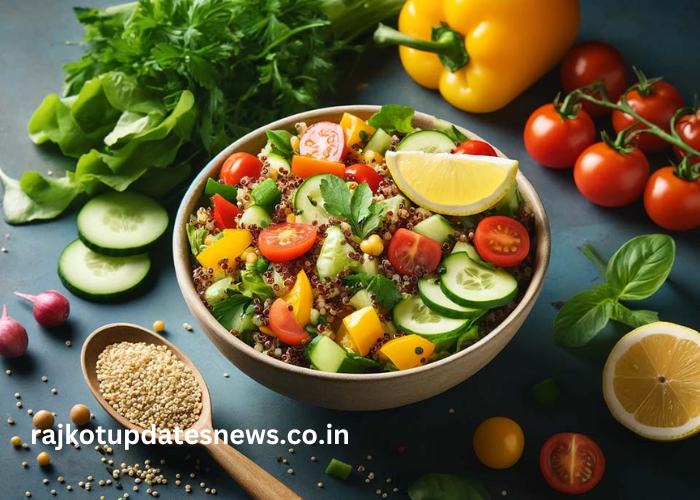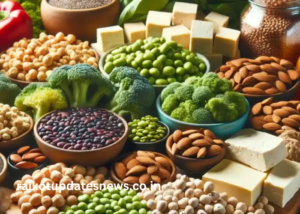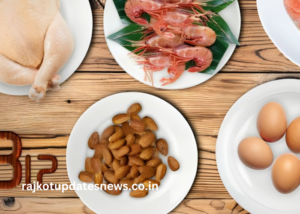
The rise in vegetarianism and veganism has led to a greater demand for plant-based protein sources. The importance of incorporating adequate protein into your diet cannot be overstated. Proteins play a crucial role in maintaining body functions, repairing tissues, and supporting muscle health.
For those who choose a vegetarian lifestyle, understanding various wellhealthorganic.com: Vegetarian Protein Sources is vital. In this blog post, we will explore the diverse array of vegetarian protein sources, their benefits, and how to incorporate them into your daily meals.
Key Points:
- Plant-based proteins can offer complete nutrition when combined properly.
- A variety of sources are available, making vegetarian diets versatile and enjoyable.
- Understanding protein content in foods helps in meal planning and nutritional balance.
What are Vegetarian Protein Sources?
Vegetarian protein sources encompass any food that provides protein and does not include meat, fish, or poultry. These include legumes, nuts, seeds, whole grains, and dairy products for lacto-vegetarians. Understanding these sources is crucial for maintaining adequate protein intake, especially for athletes and those with higher protein requirements.
Why is Protein Important for Vegetarians?
Protein is essential for several bodily functions, including muscle growth, immune function, and the production of hormones. For vegetarians, meeting protein needs can sometimes be challenging, making it crucial to be aware of the wellhealthorganic.com: Vegetarian Protein Sources available.
- Muscle Health: Adequate protein is necessary for muscle maintenance and growth, especially for active individuals.
- Immune Support: Proteins are vital for the synthesis of antibodies and immune cells.
- Hormonal Balance: Proteins play a role in producing hormones that regulate metabolism and mood.
What are the Best Vegetarian Protein Sources?
1. Legumes (Beans, Lentils, and Chickpeas)
Legumes are one of the best sources of vegetarian protein. They are rich in fiber and various nutrients.
- Examples: Black beans, kidney beans, lentils, and chickpeas.
- Protein Content: One cup of cooked lentils contains approximately 18 grams of protein.
Incorporating legumes into your meals can be as simple as adding them to soups, salads, or making veggie burgers.
2. Nuts and Seeds
Nuts and seeds are excellent protein sources that also provide healthy fats and fiber.
- Examples: Almonds, walnuts, chia seeds, and hemp seeds.
- Protein Content: Two tablespoons of hemp seeds contain about 10 grams of protein.
Snacking on nuts or adding seeds to smoothies or salads can significantly boost your protein intake.
3. Whole Grains
Whole grains are often overlooked as protein sources but can contribute significantly to your daily intake.
- Examples: Quinoa, brown rice, and farro.
- Protein Content: One cup of cooked quinoa contains around 8 grams of protein.
Using whole grains as a base for meals can enhance both flavor and nutrition.
4. Dairy Products
For those who consume dairy, it serves as a rich protein source.
- Examples: Greek yogurt, cottage cheese, and milk.
- Protein Content: One cup of Greek yogurt has approximately 20 grams of protein.
Dairy products can be consumed as snacks, added to smoothies, or used in cooking.
5. Tofu and Tempeh
Tofu and tempeh are soy-based products that are packed with protein.
- Protein Content: Half a cup of tofu provides about 10 grams of protein, while tempeh offers around 15 grams per half-cup.
Both tofu and tempeh can be marinated and grilled or stir-fried for a delicious and protein-rich meal.
6. Eggs
For ovo-vegetarians, eggs are an excellent source of high-quality protein.
- Protein Content: One large egg contains about 6 grams of protein.
Eggs can be prepared in various ways, making them a versatile ingredient in vegetarian diets.
7. Protein Supplements
Vegetarians may also consider protein supplements derived from plants.
- Examples: Pea protein, brown rice protein, and hemp protein.
- Benefits: They can be easily incorporated into smoothies or baked goods.
Protein supplements can be particularly useful for athletes or individuals with higher protein requirements.
8. Plant-Based Protein Products
The market for plant-based protein products has exploded, offering a variety of options for vegetarians.
- Examples: Meat substitutes like Beyond Meat and Impossible Burger.
- Benefits: These products can mimic the texture and taste of meat while providing protein.
These can be utilized in traditional meat dishes, making them an excellent option for transitioning vegetarians.
9. Edamame
Edamame, or young soybeans, are another delicious protein-rich snack.
- Protein Content: One cup of cooked edamame has about 17 grams of protein.
Edamame can be enjoyed on their own or added to salads and stir-fries.
Conclusion
Understanding wellhealthorganic.com: Vegetarian Protein Sources is essential for anyone following a vegetarian diet. With a variety of protein sources available, it is entirely possible to meet your protein needs while enjoying delicious meals.
By combining different sources, such as legumes, nuts, seeds, and whole grains, you can ensure a balanced and nutritious diet. Whether you are a long-time vegetarian or considering a plant-based lifestyle, exploring these protein sources can significantly enhance your health and well-being.
FAQs
Q1: What are some high-protein vegetarian snacks?
A1: High-protein vegetarian snacks include Greek yogurt, mixed nuts, edamame, and protein bars.
Q2: How can I increase protein intake on a vegetarian diet?
A2: To increase protein intake, incorporate more legumes, nuts, seeds, and dairy, and consider protein supplements.
Q3: Are plant-based proteins as effective as animal proteins?
A3: Yes, plant-based proteins can be as effective, especially when consumed in combination to ensure a complete amino acid profile.
Q4: How much protein do vegetarians need daily?
A4: Vegetarians should aim for about 0.8 grams of protein per kilogram of body weight, though athletes may need more.
Q5: Can I get enough protein without meat?
A5: Absolutely! By diversifying your diet with wellhealthorganic.com: Vegetarian Protein Sources, you can easily meet your protein needs without meat.


